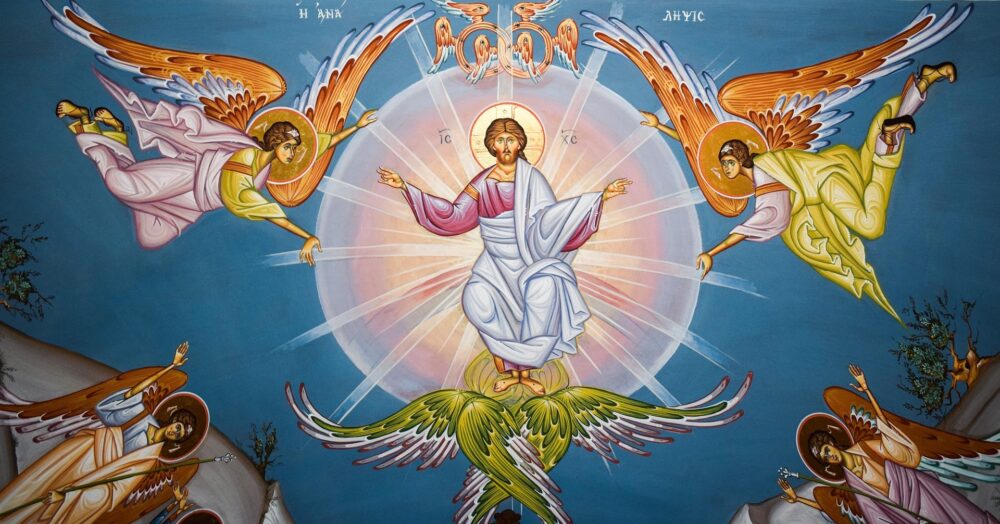Fascinating. It was no easy or light thing to become a Christian in those days. Clearly these believers treated their faith as a pearl of exceeding value (Mt 7.6, 13.44-46)!
I must also describe how those who are baptized at Easter are instructed. Those who give their names do so the day before Lent, and the priest notes down all their names; and this is before those eight weeks during which, as I have said, Lent is observed here. When the priest has noted down everyone’s name, then on the following day, the first day of Lent, on which the eight weeks begin, a throne is set up for the bishop in the center of the major church [behind the site of the cross], the Martyrium. The priests sit on stools on both sides, and all the clergy stand around. One by one the candidates are led forward, in such a way that the men come with their godfathers and the women with their godmothers.
Then the bishop questions individually the neighbors of the one who has come up, inquiring: “Does this person lead a good life? Obey parents? Is this person a drunkard or a liar?” And the bishop seeks out in the candidate other vices which are more serious. If the person proves to be guiltless in all these matters concerning which the bishop has questioned the witnesses who are present, the bishop notes down the candidate’s name. If, however, the candidate is accused of anything, the bishop orders the person to go out and says: “Let such a one amend their life, and when this is done, then approach the baptismal font.” He makes the same inquiry of both men and women. If, however, some are strangers, such people cannot easily receive baptism, unless they have witnesses who know them.
Ladies, my sisters, I must describe this, lest you think that it is done without explanation. It is the custom here, throughout the forty days on which there is fasting, for those who are preparing for baptism to be exorcised by the clergy early in the morning, as soon as the dismissal from the morning service has been given at the Anastasis [site of the empty tomb]. Immediately a throne is placed for the bishop in the major church, the Martyrium. All those who are to be baptized, both men and women, sit closely around the bishop, while the godmothers and godfathers stand there; and indeed all of the people who wish to listen may enter and sit down, provided they are of the faithful. A catechumen, however, may not enter at the time when the bishop is teaching them the law. The bishop does so in this way: beginning with Genesis and going through the whole of Scripture during these forty days, expounding first its literal meaning and then explaining the spiritual meaning. In the course of these days everything is taught not only about the Resurrection but concerning the body of faith. This is called catechetics.
When five weeks of instruction have been completed, they then receive the Creed. The bishop explains the meaning of each of the phrases of the Creed in the same way as Holy Scripture was explained, expounding first the literal and then the spiritual sense. In this fashion the Creed is taught.
And thus it is that in these places all the faithful are able to follow the Scriptures when they are read in the churches, because all are taught through those forty days, that is, from the first to the third hours [6am-9am], for during the three hours instruction is given. God knows, ladies, my sisters, that the voices of the faithful who have come to catechetics to hear instruction on those things being said or explained by the bishop are louder than when the bishop sits down in church to preach about each of those matters which are explained in this fashion. The dismissal from catechetics is given at the third hour [9:00am], and immediately, singing hymns, they lead the bishop to the Anastasis, and the office of the third hour takes place. And thus they are taught for three hours a day for seven weeks. During the eighth week, the one which is called the Great Week [Holy Week], there remains no more time for them to be taught, because what has been mentioned above must be carried out.
Now when seven weeks have gone by and there remains only Holy Week, which is here called the Great Week, then the bishop comes in the morning to the major church, the Martyrium. To the rear, at the apse behind the altar, a throne is placed for the bishop, and one by one they come forth, the men with their godfathers, the women with their godmothers. And each one recites the Creed back to the bishop. After the Creed has been recited back to the bishop, the bishop delivers a homily to them all, and says: “During these seven weeks you have been instructed in the whole law of the Scriptures, and you have heard about the faith. You have also heard of the resurrection of the flesh. But as for the whole explanation of the Creed, you have heard only that which you are able to know while you are still catechumens. Because you are still catechumens, you are not able to know those things which belong to a still higher mystery, that of baptism. But that you may not think that anything would be done without explanation, once you have been baptized in the name of God, you will hear of them during the eight days of Easter in the Anastasis following the dismissal from church. Because you are still catechumens, the most secret of the divine mysteries cannot be told to you.”
—Pilgrimage, 45-46






You must be logged in to post a comment.